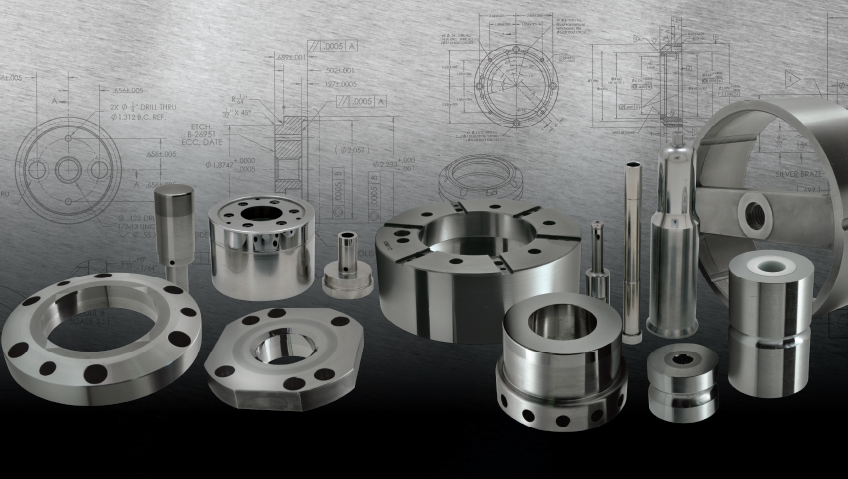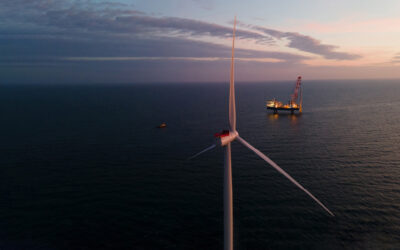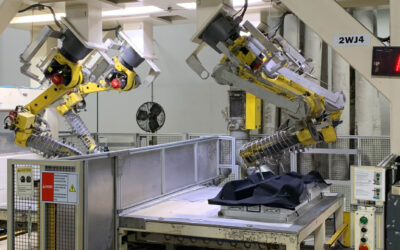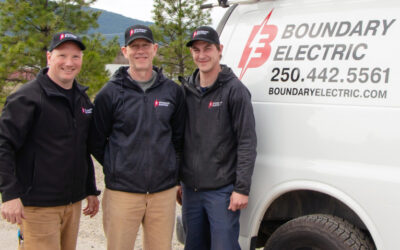Since 1972, Elizabeth Carbide Components has built a solid reputation in its industry for quality products, customer service and prompt delivery. The company manufactures custom-tooling, specialized components and wear parts made from tungsten carbide, ceramic, and tool steels.
Two years after its inception, Elizabeth Carbide Components joined its parent company and is now one of seven companies under the umbrella of Elizabeth Carbide Die Co. Inc. Melvin B. Peterson established the parent company in McKeesport, Pennsylvania, in 1954. Under his leadership, it found a great deal of success in the compression tooling industry and has grown to serve the global marketplace.
A focus on fully custom, built-to-order components has enabled Elizabeth Carbide Components to find its niche in the oil and gas industry. “All of our manufacturing is custom made to customer drawing specifications. We don’t have a catalogue. We don’t have any parts on a shelf that we sell. It is all made to drawing specifications and then the pricing is determined by the quantity, style, and tolerances,” says Ken Plunko, Sales Manager at Elizabeth Carbide Components.
Many of the company’s fifty-six employees in Latrobe, Pennsylvania, have enjoyed a long-tenured career with the company. The leadership aims to promote from within and much of its management team began careers on the shop floor and climbed the ladder over time. To recruit new talented people, Elizabeth Carbide Components provides funding for a machinist apprenticeship program. It also regularly advertises for dedicated, experienced employees, yet finds that word of mouth and referrals are the most successful avenues for recruitment.
The company also works with local schools to raise awareness about the need for qualified machinists and collaborates with the United States Department of Veterans Affairs to find potential employees to lessen the impact of the skilled labor shortage.
Elizabeth Carbide Components serves a variety of industries, but the oil and gas market makes up approximately seventy percent of the business. Every year, the team participates in two large conferences pertaining to this sector: the Offshore Technology Conference in Houston, Texas and the Global Petroleum Show in Calgary, Alberta. They also take part in FABTECH, an exhibition for the metal forming, stamping, and fabricating industries. The convention is a great opportunity to learn about the newest technology and improve the company’s ability to manufacture specialized components. By participating in such events, the company aims to help push the industry forward.
The business has experienced plenty of growth over the last ten years, although much of this growth took place before the oil and gas crisis in 2015. “Unfortunately, with the oil and gas industry, you live and die with it. When it’s good, it’s good, and when it’s bad, it’s bad. We had our downturn four years ago, and when it hit, it hit us bad. We went from $14.5 million down to $5.5 million, but we’ve recovered. We got involved with other different types of industry to basically keep the lights on and doors open, and now we’ve bounced back,” says Plunko.
When the price of crude oil dropped, Elizabeth Carbide Components turned the challenge into an opportunity and invested in itself by upgrading and expanding its manufacturing facility to ensure it had the capacity to grow when the economy picked up again. “We actually doubled our facility about four years ago, right about the time that everything tapered off. We doubled our size from 22,500 square feet to 45,000 square feet. Now we have additional room to grow into,” says Joe Smola, Plant Manager at Elizabeth Carbide Components.
Elizabeth Carbide Components is dedicated to ongoing improvement and strives to purchase new equipment as often as possible to keep up with the latest advancements in manufacturing. The company has a wide variety of machines designed for machining, grinding, polishing, and Electrical Discharge Machining. In the grinding department, the company utilizes both computer numerical control (CNC) and conventional equipment capable of inner diameter and outer diameter grinding, like its three Danobat Overbeck IRD 400 CNC grinders which can grind pieces on I.D. and O.D., with a single set up in a range of sizes, and its Kellenberger K100 Grinder, with a wide range of sizes.
Elizabeth Carbide Components offers surface grinding for pieces up to twenty-four inches long; thread grinding of carbide or ceramic material; centerless grinding, honing, turning, milling, brazing, lapping and polishing to a two micro inch finish; and laser etching, labeling and bar coding for identification and traceability.
Over the course of its existence, Elizabeth Carbide Components has built a reputation for quality service and on-time delivery. “We take as much pride in shipping our products as we do in making them. People appreciate that and the customer service we provide. Our customer service people are very prompt and get back with the customers right away. Our capabilities, the quality of the products we manufacture, and our customer service are the things that keep the customers coming back,” says Ken.
Quality assurance is key. The company has an ISO 9001-2015 certification, demonstrating consistent, quality production and complete traceability of all the materials and processes it uses in its operation.
“Elizabeth Carbide Components is located in what is known in the carbide industry as ‘Carbide Valley.’ This being said, we have six tungsten carbide manufacturers within thirty minutes of our facility. This enables us to have a very good relationship with carbide manufacturers when it comes to competitive pricing and better deliveries. We have worked diligently to build strong working relationships with Basic Carbide, Innovative Carbide and Vista Metals. Having these suppliers in our own backyard is an advantage when it comes to purchasing carbide preforms,” says Ken.
Elizabeth Carbide Components is looking to diversify even further into new areas to better navigate any economic problems that might arise. The company has grown to be a leader in its region and will continue to grow into the future. The team has plans to manufacture various types of tooling in manufacturing cans, shaping and forming wire, tooling to manufacture components for the automotive industry, metal stamping and ammunitions, the battery industry, and the textile industry, among others. “We want to continue to service all of the valued customers that we have and also grow with new ones,” says Smola.













